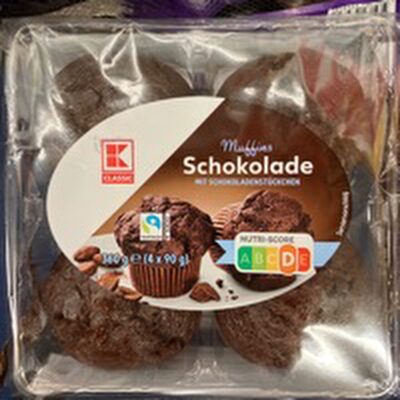
Barcode: 5709152012361
Muffins Schokolade
HALAL
📝 Reason: According to Islamic dietary law (Quran 5:3), all ingredients must be free of Haram substances such as alcohol, pork, or non-Halal E-codes. This product contains no clear Haram or animal/meat-derived ingredients but contains glycerin, modified starch, and natural flavor, which can be derived from plant or animal sources. Without Halal certification, these ingredients make the product Doubtful (Mashbooh). Refer to IFANCA and foodchemadditives.com for status of confectionery ingredients. For Muslims seeking full compliance, avoid products with doubtful ingredients unless certified.
🏷️ Category: Snacks, Sweet Snacks, Biscuits And Cakes, Cakes, Muffins, Chocolate Cakes, Chocolate Muffins
📄 Certificates: N, /, A
Ingredients:
Details
Understanding the Halal Status of Muffins Schokolade
If you are wondering whether Muffins Schokolade is Halal, you’re not alone. Many consumers today are conscious of their dietary choices, especially those embracing Halal eating. In this article, we will explore the Halal status of Muffins Schokolade, breaking down its ingredients, explaining the sources of potential concerns, and providing peace of mind for those who adhere to Islamic dietary laws.
What Makes a Product Considered Halal?
According to Islamic dietary laws, particularly Quran 5:3, Halal products must be free from Haram substances. This includes avoiding any ingredients derived from pork, alcohol, or animals not slaughtered according to Islamic principles. To ensure compliance, it’s crucial to scrutinize the ingredients involved in each product.
Ingredients Breakdown for Muffins Schokolade
The ingredients in Muffins Schokolade include:
- Sugar: Plant-derived, Halal unless purified with alcohol or animal-derived processes. Rare in commercial products (source).
- Wheat flour: A naturally Halal component derived from plants (source).
- Rapeseed oil: Generally Halal unless mixed with Haram substances (source).
- Water: Pure and Halal.
- Eggs: Must come from Halal sources, typically chicken. If Halal, then this ingredient is safe for consumption (source).
- Glycerin: Could be plant, animal, or synthetic. Without clear labeling, its Halal status is uncertain, making it doubtful (source).
- Starch: Halal if derived from wheat, confirming its plant origin (source).
- Cocoa mass: Halal as it comes from cocoa beans (source).
- Low-fat cocoa powder: Halal and safe for consumption.
- Leavening agents: Diphosphate and sodium carbonates are Halal (source).
- Modified starch: Its source can be unclear, making its Halal status questionable (source).
- Wheat protein: Plant-based and Halal.
- Natural flavor: Can originate from plant or animal sources, leading to uncertainty without clear specification (source).
- Cocoa butter: Halal as it derives from plant sources.
- Salt: Mineral and inherently Halal.
- Dextrose: Derived typically from Halal sources like corn or wheat (source).
- Xanthan gum: Generally Halal, unless grown on Haram substrates, which is rare (source).
- Soy lecithin: Plant-derived and Halal (source).
- Skim milk powder: Must come from Halal dairy sources.
Conclusion: Is Muffins Schokolade Truly Halal?
While Muffins Schokolade contains mostly Halal ingredients, two specific components—glycerin and natural flavor—can make the product categorized as ‘Doubtful’ (Mashbooh) without clear attribution or certification regarding their origins. For consumers strictly following Halal dietary guidelines, it is advisable to avoid products with ambiguous ingredients unless certified Halal. Brands often provide certification to put customers at ease, so look for certified products in the future. Consulting resources like IFANCA and foodchemadditives.com can also provide valuable insights.
